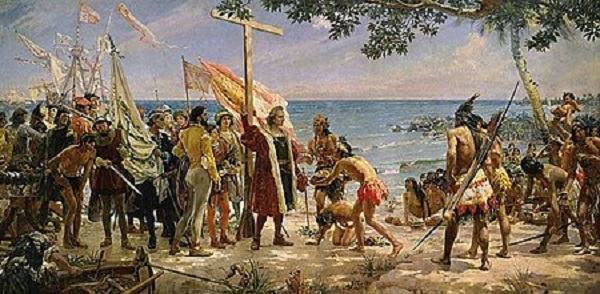Day of Indigenous Resistance or Hispanic Heritage?

The historian Orlando Arciniegas wonders if Venezuela, this October 12, should really celebrate the Indigenous Resistance Day or the Day of Hispanic Heritage and Mestizaje.
The also retired professor from the University of Carabobo, with a doctorate in history, points out that both in Venezuela as in Nicaraguathe date has been declared by their governments as an occasion to remember the indigenous struggles in “defense of their culture and integrity against Spanish colonization.”
Quote that on October 12 originally, it used to be commemorated both in Spain and in ancient Spanish America, the Day of the Discovery of America (1492)by the Genoese navigator Christopher Columbus, while he served the Crown of Castile.

Dr. Orlando Arciniegas. The Carabobeño
In Venezuela, the date was established as a holiday during the government of Juan Vicente Gómez under the name “Columbus Day.”
However, this was not to the liking of President Hugo Chávez, who, since October 11, 2002, changed it to the “Day of Indigenous Resistance.” given his conviction that the previous form glorified discrimination and racism.
Under the new name, “there is no place to celebrate Hispanicity, since that was and is the culture of the conqueror. As if our culture as a Venezuelan people did not have, precisely, that seal and identity,” says Dr. Arciniegas.
He warns that the date, on the contrary, has been given way by exalted indigenous people, as well as opportunist politicians who dare to present themselves as heirs of grievances committed against indigenous peoples, without even having the moral endorsement of a decisive government action that would seek their dignity.
The historian emphasizes that they take advantage of the occasion for a reminder full of resentment and denials that any Martian tourist, unaware of the matter, could think that these are recent events, and not those that occurred. more than five hundred years ago, and on which there has been a happy reconciliation that was first formalized in March 1845, 179 years ago, when the two countries signed a Treaty of Recognition, Peace and Friendship.
Agreement that has been sustained over time thanks to the intelligent recognition that, beyond the facts of confrontation and destruction of Independence, historical events framed in the stimulating contextuality of its time.
It is about ethnically and culturally twinned peoplesthrough the figure of a rich and beneficial mixture, to which is added the affectionate shared experience of many generations.
And that the recent phenomenon of the Venezuelan diaspora has done nothing but unite and solidify. And from which, consequently, bonds and gratitude are derived that are above the petty interests of those who try to do politics with the distortion of history.
The scholar points out that, rather than getting involved in the traps of the professional politicians, whom a good school is missing and the historical reflection of greatness, October 12 is a good time to return to memory of what the Spanish presence left in America.
It states that Spain, unlike other European colonialisms, contributed to the transfer of its vigorous cultural effort (schools, libraries, universities, courts and other Renaissance ways of life).
He also contributed with his administrative and legal capacities to the creation of the intellectual and political elites who, later, after the breaking of the colonial nexus, would address the construction, since the 19th century, of the new national states from the viceroyalties, presidencies, general captaincies and councils of the Spanish administration.
Independent journalism needs the support of its readers to continue and ensure that the uncomfortable news they don’t want you to read remains within your reach. Today, with your support, we will continue working hard for censorship-free journalism!
